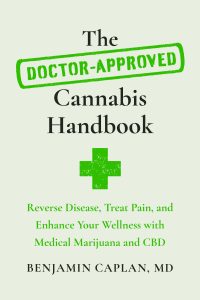Review of Pain relief with THC
In the world of medical cannabis, Tetrahydrocannabinol (THC) stands out for its potent therapeutic potential. Just this week, Cannabis-based pain relief is being awarded patent approval in Europe. This post explores some of the therapeutic benefits of THC, focusing on its effectiveness in treating pain, insomnia, and inflammatory bowel disease (IBD).
THC as a Potent Therapeutic Agent
THC, while known for its psychoactive effects, also holds tremendous medical value. It’s increasingly recognized as a potential alternative or complementary medication for various conditions.
Let’s explore three common health conditions for which THC can be an effective treatment:
Pain
Overview:
Chronic pain is a pervasive health issue affecting roughly 20% of the global population[1]. Traditional treatment options such as narcotics and opioids carry substantial risks, including addiction and other adverse side effects. Tetrahydrocannabinol (THC), the psychoactive component of cannabis, offers an alternative avenue for pain management.
Research Insights:
Research in this area indicates that THC’s efficacy in pain management stems from its interaction with the endocannabinoid system. Specifically, THC activates CB1 and CB2 receptors found in nerve and immune cells, thereby modulating pain signals and producing analgesic effects[2]. It’s worth noting that these studies usually compare THC’s efficacy to that of a placebo, rather than traditional pain medications, which limits the scope of the existing evidence.
Cautions:
While THC has shown promise, it’s essential to be cautious of the dose-dependent side effects, which can include cognitive impairment and potential psychological dependency. Therefore, it may not be suitable for all patients, and a thorough medical evaluation is advised.
Insomnia
Overview:
Insomnia and other sleep disorders are on the rise, affecting about 30% of adults in the short term and 10% chronically[3]. Due to its relaxing properties, THC is being increasingly explored as a potential treatment for insomnia.
Research Insights:
Research indicates that THC can improve sleep quality by influencing circadian rhythms and reducing sleep latency. In some studies, THC has been shown to increase the duration of the non-REM stage of sleep, which is essential for restorative rest[6].
Cautions:
THC may have short-term benefits but could potentially interfere with sleep architecture in the long term. The compound can also cause next-day drowsiness in some individuals.
Inflammatory Bowel Disease (IBD)
Overview:
IBD, affecting about 1.3% of adults in the U.S[4], is a chronic condition with limited treatment options. THC has been researched for its anti-inflammatory properties and potential utility in treating IBD symptoms.
Research Insights:
Multiple studies have suggested that THC can reduce inflammation in the gut by acting on cannabinoid receptors in the digestive tract[5]. Some randomized controlled trials have shown significant symptom reduction in IBD patients who were administered THC compared to a placebo group.
Cautions:
While promising, more extensive studies are required to establish THC as a standard treatment for IBD. Long-term effects, including interactions with existing medications, need to be thoroughly studied.
Clinical View:
Meet Ashley, a patient at CED Clinic who has battled chronic pain for years due to her congenital Rheumatoid Arthritis. For a long time, she relied on a regimen of anti-inflammatories, analgesics, and opioids to manage her symptoms. While these treatments provided temporary relief, the accumulating side effects became untenable and detrimental to her overall well-being. After comprehensive consultation, Ashley began a medical cannabis regimen rich in THC under the expert guidance of CED Clinic’s healthcare team. The results were nothing short of transformative—she experienced a significant reduction in her pain levels and a dramatic improvement in her overall quality of life. Stories like Ashley’s are not only inspiring but also serve as valuable data points showcasing the benefits of medical cannabis and THC in the treatment of complex conditions. If you’re intrigued by the medical potential of cannabis, I delve deeper into the science, the evidence, and transformative patient stories like Ashley’s in my new book, the “Doctor-Approved Cannabis Handbook,” available now on Amazon.
Check out More on Pain at CaplanCannabis.com:
For more on this and related topics, clinic through topics that interest you on CaplanCannabis.com
📗 Note: The diagram’s your prelude. The magnum opus? That’s inked in the book. Compose your understanding here 📗

References
- Global Burden of Disease Study
- Baron, E. P. (2018). Medicinal Properties of Cannabinoids, Terpenes, and Flavonoids in Cannabis, and Benefits in Migraine, Headache, and Pain: An Update on Current Evidence and Cannabis Science. Headache: The Journal of Head and Face Pain, 58(7), 1139–1186.
- American Academy of Sleep Medicine
- Centers for Disease Control and Prevention
- Lahat, A., Lang, A., & Ben-Horin, S. (2012). Impact of cannabis treatment on the quality of life, weight and clinical disease activity in inflammatory bowel disease patients: a pilot prospective study. Digestion, 85(1), 1–8.
- Gorelick, D. A., Goodwin, R. S., Schwilke, E., Schwope, D. M., Darwin, W. D., Kelly, D. L., … Huestis, M. A. (2013). Around-the-clock oral THC effects on sleep in male chronic daily cannabis smokers. The American Journal on Addictions, 22(5), 510–514.
- Goldberg, D. S., & McGee, S. J. (2011). Pain as a global public health priority. BMC public health, 11, 770. https://doi.org/10.1186/1471-2458-11-770
- Woodhams, S. G., Chapman, V., Finn, D. P., Hohmann, A. G., & Neugebauer, V. (2017). The cannabinoid system and pain. Neuropharmacology, 124, 105–120. https://doi.org/10.1016/j.neuropharm.2017.06.015
- Roth, T. (2007). Insomnia: definition, prevalence, etiology, and consequences. Journal of clinical sleep medicine : JCSM : official publication of the American Academy of Sleep Medicine, 3(5 Suppl), S7–S10.
- Dahlhamer, J. M., Zammitti, E. P., Ward, B. W., Wheaton, A. G., & Croft, J. B. (2016). Prevalence of Inflammatory Bowel Disease Among Adults Aged ≥18 Years – United States, 2015. MMWR. Morbidity and mortality weekly report, 65(42), 1166–1169. https://doi.org/10.15585/mmwr.mm6542a3
- Hasenoehrl, C., Storr, M., & Schicho, R. (2018). Cannabinoids for treating inflammatory bowel diseases: where are we and where do we go? Expert review of gastroenterology & hepatology, 11(4), 329–337. https://doi.org/10.1080/17474124.2017.1416148


I never knew that THC is a natural supplement that can help someone sleep better and improve their lifestyle. I have heard rumors that my best friend has been struggling to sleep recently because of anxiety. I will talk to him about finding a store that sells THC and hemp flowers so he can try this out.